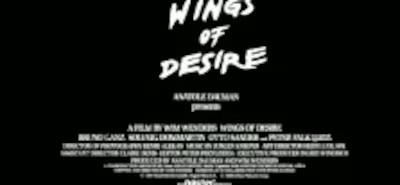Anatole Dauman
About
Biography
Filmography
Family & Companions
Notes
Named Chevalier of the Legion of Honor
Named Commander of Arts and Letters by the French government
Biography
Although born in Poland, producer Anatole Dauman spent most of his life in his adopted homeland of France. After distinguishing himself in the French Resistance during WWII, he went on to become a pioneer in the French New Wave, producing several important films through his company Argos Films. During the 1950s, Dauman and Argos oversaw numerous short films by such esteemed filmmakers as Jean Aurel, Alexandre Ausruc and Agnes Varda. Among the groundbreaking films he produced were Alain Resnais' powerful documentary "Night and Fog" (1956) as well as that director's complex debut feature "Hiroshima, Mon Amour" (1959) and "Last Year at Marienbad" (1961), In 1962, Dauman was the producer of Chris Marker's "The Pier/La Jetee," which consisted of still photographs reconstructing a man's remembrance of a pier in Orly, a woman and a death. Following fruitful collaborations with Robert Bresson and Jean-Luc Godard in the 60s and Walerian Borowczyk in the 70s, he teamed with Japanese director Nagisa Oshima for the critically-praised but highly controversial "In the Realm of the Senses" (1976), which focused on an obsessive love affair and contained sexually explicit set pieces. 1979's "The Tin Drum," directed by Volker Schlondorff became the first German film to win a Best Foreign-Language Film Academy Award. The 80s found Dauman working in collaboration with Andrei Tarchovsky on that director's last film, "The Sacrifice" (1986) and with Wim Wenders on the English-language "Paris, Texas" (1984) and the brilliant "Wings of Desire" (1987). His final film as producer was Chris Marker's documentary about the Battle of Okinawa, "Level Five" (1996).
Filmography
Producer (Feature Film)
Producer (Short)
Life Events
1949
Co-founded (with Philippe Lifchitz) Argos Films
1955
Garnered international attention with Alain Resnais' "Night and Fog"
1959
Through Argos, released "Hiroshima, Mon Amour", directed by Resnais
1962
Produced Chris Marker's "La Jetee/The Pier"
1976
Engendered controvery with the release of Nagisa Oshima's "In the Realm of the Senses"
1979
Argos was one of the production companies involved with Volker Schlondorff's award-winning "The Tin Drum"
1984
Produced Wim Wenders' English-language film "Paris, Texas"
1986
Served as producer of Andrei Tarkovsky's last film, "The Sacrifice"
1987
Reteamed with Wenders for "Wings of Desire"
1991
Third teaming with Wenders, "Until the End of the World"
1996
Last film, Chris Marker's "Level Five"
Videos
Movie Clip












Trailer
Family
Companions

Bibliography
Notes
Named Chevalier of the Legion of Honor
Named Commander of Arts and Letters by the French government
Decorated for his involvement with the Resisitance movement
Received Cross of Merit for his film work












